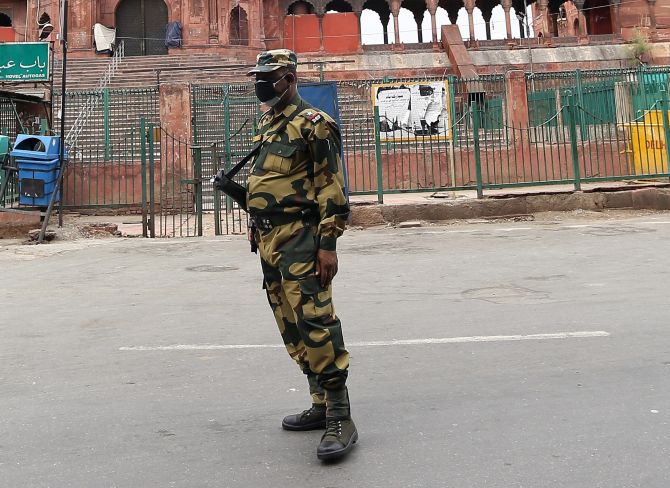Union Home Minister Amit Shah has directed all central armed police forces to compile three-year data and inform his ministry if their jawans and officers are utilising their stipulated leaves as part of his ambitious proposal that aims at allowing troops spend at least 100 days with their families in a year, officials said on Thursday.
The home ministry has directed these forces to depute a senior officer in the rank of an additional director general (in-charge of human resources) to submit a report in this context by the first week of next month.
The Central Armed Police Forces or paramilitary forces include the Central Reserve Police Force, Border Security Force, Indo-Tibetan Border Police, Central Industrial Security Force and the Sashastra Seema Bal.
The directive is also valid for the Assam Rifles that functions under the administrative command of the home ministry.
As per officials and documents accessed by PTI, Shah gave the latest direction after he recently reviewed the progress of the subject he had mooted last year, of ensuring that each jawan and officer of these forces gets to spend at least 100 days in a year with their families.
The move was aimed to reduce stress and enhance the happiness quotient of these personnel who work in harsh climatic conditions and long schedule, even as these forces battle regular cases of suicides and fratricidal killings.
The home ministry has now sought a point-wise data of leaves being granted to personnel from these forces for the current year, last year and 2018 in order to find out if the comparative situation is improving over the years and also if the home minister’s proposal is being implemented on the ground.
“The aim of the exercise is to find out if the forces are able to implement the directive. The data will tell the ministry and the home minister about the actual situation on ground and the reasons behind not accomplishing the desired target,” a senior home ministry officer told PTI.
He said the ambitious plan can be achieved by undertaking some smart human resource management steps and this will help in improving the overall health of these forces and also the troops.
The forces have now been asked to inform the ministry about their total strength; the number of personnel eligible for availing a total of 75 days leave in a year; personnel who were able to consume all the 75 days leave; those who availed leave between 60-74 days and those who could only utilise 45-59 days leave during a year.
An average CAPF jawan or officer gets a total of 75 days leave quota and this limit goes up or down in case of specific operational requirements, hard area deployment and posting in remote areas.
Shah had mooted the plan in October last year and had directed the CAPFs to implement it by undertaking a mega manpower planning.
Following this, a seven-member panel of officers from these forces was created with a two-point terms of reference: (I) to design a software for digitisation of the deployment of the personnel and (ii) propose changes, if any, in service conditions/standard operating procedures of the force in order to give effect to the above (point no 1) objective.
It was being planned that in order to implement the 100-day leave plan, the jawans and officers will be posted at units close to their home town or where their family lives so that they can travel and stay with their families when there are no operational exigencies.
It was also envisaged that the CAPFs will create or refurbish their establishments so that the families of the troops can come over and live at the location of their posting for a limited time period.
These forces are deployed for rendering a variety of internal security duties, border guarding, undertaking anti-Naxal operations and counter-terrorist combat apart from rendering assistance to various state governments during law and order disturbances.




